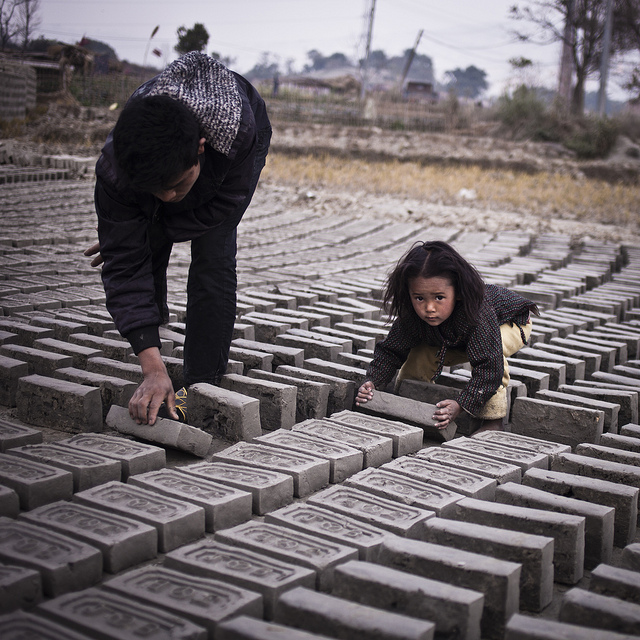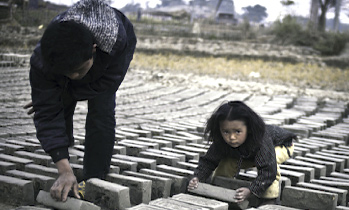Efforts to combat modern slavery with the Indian legal system are plagued by delays, suggests new research, often leaving human traffickers free to reoffend.
Convictions can take up to five years to secure in a country where there may be as many as 14 million victims of human trafficking, according to the Global Slavery Index. Difficulties getting key government witnesses to attend hearings are compounded by a lack of resources for the non-government organisations (NGO) supporting victims’ cases.
“Although the cases are pursued in the courts, by the time victims get justice it’s late and justice delayed is justice denied,” said Rajneesh Yadav, a state programme manager for Manav Sansadhan Evam Mahila Vikas Sansthan (MSEMVS), an anti-slavery NGO working in the northern Indian state of Uttar Pradesh, one of the worst affected regions.
Further hampered by the lack of a comprehensive law covering trafficking or slavery, convictions are instead made against acts covering bonded labour, child labour and minimum wage requirements.
“We still do not have a comprehensive act for people who are affected by trafficking and slavery,” said Yadav.
“We stand for the survivors [of slavery], but on the other hand slave holders and traffickers are very rich and full of money, so it’s easy for them to hire experienced criminal lawyers for themselves.
“Grass roots organisations like us find it difficult.”

Bipana Tamang (4 years old) helps her dad turn bricks to dry in the sun. Photo: Alice Carfrae, © Legatum Limited 2014
MSEMVS provides people rescued from enslavement with legal aid services through its network for 16 advocates in different districts of Uttar Pradesh. The organisation has driven around 350 cases through the courts, while also monitoring the progress and reintegration of some 2000 or so people rescued over the last three years.
Despite the delays, the existing laws themselves are seen as relatively robust, as Nick Grono, CEO of the Freedom Fund explained.
“Modern slavery is illegal in all its forms in India, yet millions are currently victims of slavery and trafficking. India has good laws in place to deal with modern slavery, yet they clearly aren’t effectively enforced,” he said.
Grono believes enforcement of the law would be a real disincentive to those profiting from the trade in human beings, helping to undermine the business case for slavery. The next step to making a real difference would come if the Indian government made enforcement of those laws a public priority, he suggested.
“If the government remains reluctant to do so, then significant change will come by NGOs and lawyers bringing Public Interest Litigation cases to the Supreme Court, to ensure effective enforcement of the law,” he said.
The Freedom Fund, which fights slavery through investment into regional anti-slavery programmes, hopes to kick-start renewed legal efforts to fight trafficking in India with a $300,000 investment made over three years. The money will go to support NGOs in the states of Uttar Pradesh and Bihar as they prioritise legal interventions.
The funding was announced as the Freedom Fund launched Putting Justice First, a report on the place of the legal system in India in combatting modern slavery, researched in partnership with the Thomson Reuters Foundation.



